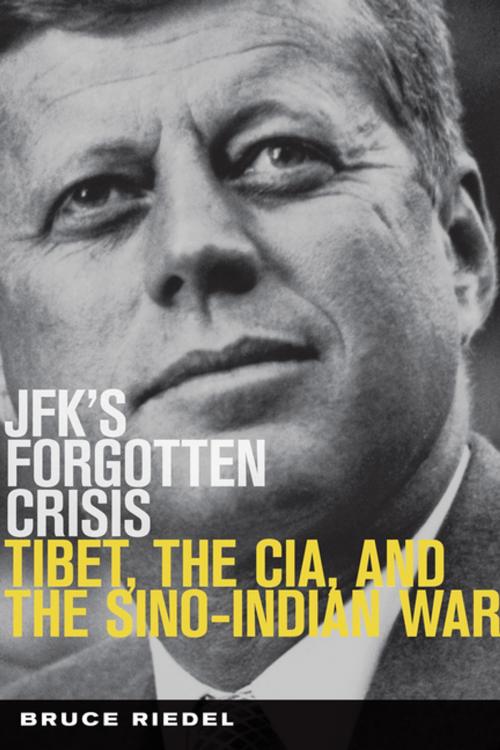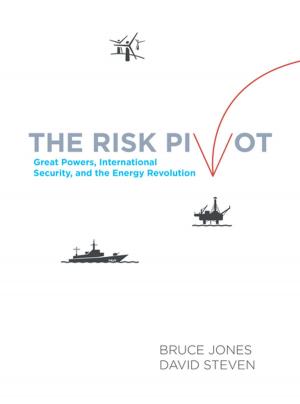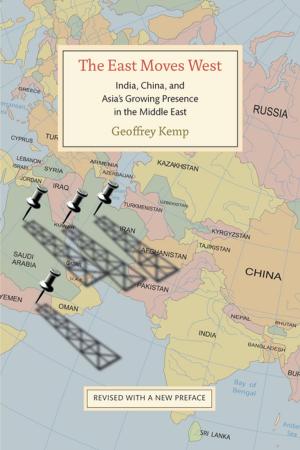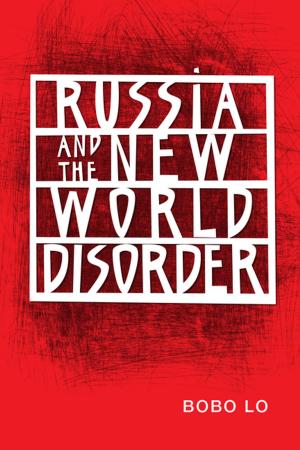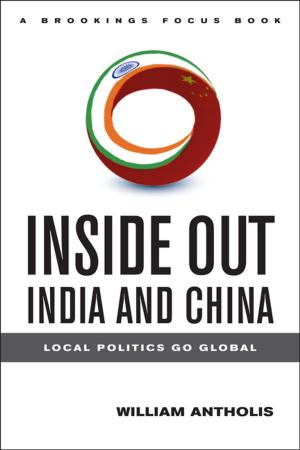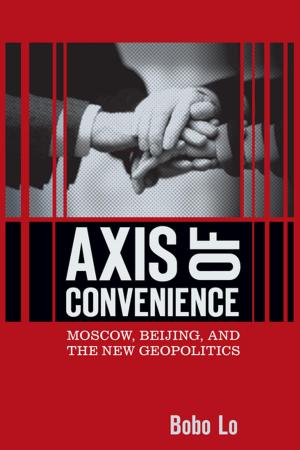JFK's Forgotten Crisis
Tibet, the CIA, and the Sino-Indian War
Nonfiction, Social & Cultural Studies, Political Science, International, International Security, International Relations| Author: | Bruce Riedel | ISBN: | 9780815727002 |
| Publisher: | Brookings Institution Press | Publication: | October 27, 2015 |
| Imprint: | Brookings Institution Press | Language: | English |
| Author: | Bruce Riedel |
| ISBN: | 9780815727002 |
| Publisher: | Brookings Institution Press |
| Publication: | October 27, 2015 |
| Imprint: | Brookings Institution Press |
| Language: | English |
Bruce Riedel provides new perspective and insights into Kennedy's forgotten crisis in the most dangerous days of the cold war.
The Cuban Missile Crisis defined the presidency of John F. Kennedy. But during the same week that the world stood transfixed by the possibility of nuclear war between the United States and the Soviet Union, Kennedy was also consumed by a war that has escaped history's attention, yet still significantly reverberates today: the Sino-Indian conflict.
As well-armed troops from the People's Republic of China surged into Indian-held territory in October 1962, Kennedy ordered an emergency airlift of supplies to the Indian army. He engaged in diplomatic talks that kept the neighboring Pakistanis out of the fighting. The conflict came to an end with a unilateral Chinese cease-fire, relieving Kennedy of a decision to intervene militarily in support of India.
Bruce Riedel, a CIA and National Security Council veteran, provides the first full narrative of this crisis, which played out during the tense negotiations with Moscow over Cuba. He also describes another, nearly forgotten episode of U.S. espionage during the war between India and China: secret U.S. support of Tibetan opposition to Chinese occupation of Tibet. He details how the United States, beginning in 1957, trained and parachuted Tibetan guerrillas into Tibet to fight Chinese military forces. The United States did not abandon this covert support until relations were normalized with China in the 1970s.
Riedel tells this story of war, diplomacy, and covert action with authority and perspective. He draws on newly declassified letters between Kennedy and Indian leader Jawaharlal Nehru, along with the diaries and memoirs of key players and other sources, to make this the definitive account of JFK's forgotten crisis. This is, Riedel writes, Kennedy's finest hour as you have never read it before.
Bruce Riedel provides new perspective and insights into Kennedy's forgotten crisis in the most dangerous days of the cold war.
The Cuban Missile Crisis defined the presidency of John F. Kennedy. But during the same week that the world stood transfixed by the possibility of nuclear war between the United States and the Soviet Union, Kennedy was also consumed by a war that has escaped history's attention, yet still significantly reverberates today: the Sino-Indian conflict.
As well-armed troops from the People's Republic of China surged into Indian-held territory in October 1962, Kennedy ordered an emergency airlift of supplies to the Indian army. He engaged in diplomatic talks that kept the neighboring Pakistanis out of the fighting. The conflict came to an end with a unilateral Chinese cease-fire, relieving Kennedy of a decision to intervene militarily in support of India.
Bruce Riedel, a CIA and National Security Council veteran, provides the first full narrative of this crisis, which played out during the tense negotiations with Moscow over Cuba. He also describes another, nearly forgotten episode of U.S. espionage during the war between India and China: secret U.S. support of Tibetan opposition to Chinese occupation of Tibet. He details how the United States, beginning in 1957, trained and parachuted Tibetan guerrillas into Tibet to fight Chinese military forces. The United States did not abandon this covert support until relations were normalized with China in the 1970s.
Riedel tells this story of war, diplomacy, and covert action with authority and perspective. He draws on newly declassified letters between Kennedy and Indian leader Jawaharlal Nehru, along with the diaries and memoirs of key players and other sources, to make this the definitive account of JFK's forgotten crisis. This is, Riedel writes, Kennedy's finest hour as you have never read it before.
